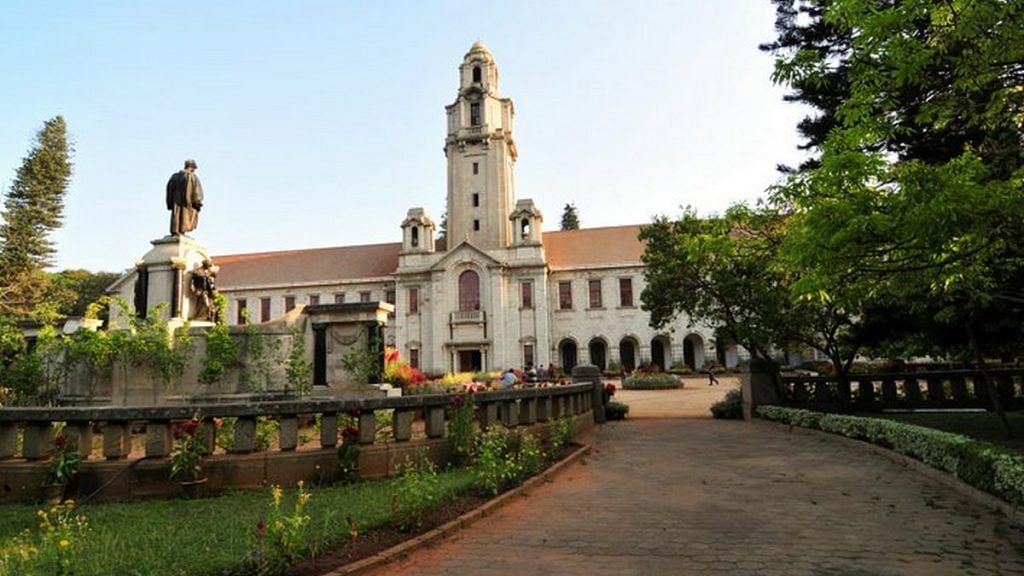IISc is probing a celebrated scientist over a complaint of sexual harassment. But it may not be an isolated incident in science community.
Bengaluru: The tremors of #MeToo are now shaking India’s science community, with a top institute investigating a celebrated scientist for the alleged sexual harassment of a research scholar.
A PhD student at the Indian Institute of Science (IISc), Bengaluru, has accused the scientist, a faculty member, of making “sexually coloured” remarks and harassing her with repeated late-night phone calls.
The faculty member in question — his faculty page is still up on the IISc website — has not been identified publicly because the investigation is still officially underway.
Even so, several publications have described his work in great detail, borrowing from his Google Sites biography page, which has since been taken offline.
He is a recipient of the prestigious Shanti Swarup Bhatnagar Prize for Science and Technology, and a J.C. Bose National Fellow.
He joined IISc in 1998 and is a recipient of the IISc Excellence Award in teaching and research. He holds fellowships from all the three national science academies — the Indian National Science Academy, the Indian Academy of Sciences, and the National Academy of Science of India — as well as the Indian National Academy of Engineering.
“He is listed among the top one per cent of scientists by the (research platform) ISI Web of Knowledge and is serving in senior editorial capacities across several top-rated science journals,” a report in The Economic Times said.
“The professor’s scientific work has resulted in more than 500 publications, 15,000 citations and an h-index of 55, the highest among all engineering faculty in India,” the report added. According to a piece in The Conversation the ‘h-index’ is described as “a numerical indicator of how productive and influential a researcher is”.
Emails from ThePrint to members of the IISc’s internal committee, the director of the institute, and the faculty member were not answered. This report will be updated when they respond.
A wider culture?
Students and professors, however, say the case may not be isolated.
The secretive nature of academia in India and the rat race for funding mean that although rumours abound about members one needs “to stay away from”, students and professors are petrified of speaking out.
The IISc, which represents the cream of Indian science, is one of the few institutes that mark the country’s presence on lists of global excellence.
The institute has taken sexual harassment on campus seriously, and, over the past year, organised regular gender sensitisation workshops for students and faculty. It also has its own anti-sexual harassment policy in place.
The policy explicitly details definitions of a hostile work environment and sexual harassment, including unwelcome physical contact, demand for sexual favours, making sexually coloured remarks, showing pornography, and unwelcome physical/verbal/non-verbal conduct.
It also provides examples of sexual harassment, citing threats to a woman’s employment, interference in work, sexist jokes, unwelcome propositions, and promise of preferential treatment.
The PhD scholar’s complaint comes as a campaign takes root within the science community to blow the whistle on its alleged culture of harassment and sexism that has been propagated by years of silence.
Also read: Unnao teen has no clue of #MeToo, just wants her ‘rapist’ BJP MLA sacked
Nandita Jayaraj, the co-founder of The Life of Science, a publication that interviews and documents the work of female scientists in India, claimed that sexual harassment was widely unreported in the field.
All the interview-profiles of scientists on the portal include a section about how female scientists overcame sexism and related hurdles at work.
“Even when scientists are being interviewed, they are extremely cautious about expressing their discomfort with sexism and choose words very carefully so as to not offend senior male faculty,” Jayaraj told ThePrint.
Seeking #MeToo stories
To dig deeper, last week, Jayaraj and The Life of Science co-founder Aashima Dogra began circulating a Google form to collect instances of sexual misconduct in science in India, with a provision to offer an anonymous account.
Also read: I deny sexual harassment: NGO head responds to #MeToo allegations
Jayaraj said their questionnaire received over 20 accounts from all over India in just three days.
“These stories in our inbox range from an unwelcome sexist comment to actual dangerous situations women find themselves in,” she said.
“Most of the time, the perpetrator is a senior or a guide, holding a position of power over the women who are desperate to not lose their career,” Jayaraj added.
Some instances detail how women approached seniors, faculty members, and even the Vishaka guidelines-mandated internal committees, but were allegedly advised to keep quiet to safeguard their careers. Others talk about how even when a perpetrator was found guilty, the internal committee let them stay on, especially if they were close to retirement.
“Due process is being set up everywhere, but it is very obvious that it isn’t working,” she said.
“Women have seemingly resigned to this and normalised it, feeling grateful that they were just molested and not raped,” she added. “It feels like justice is too much to ask for when they want to be successful.”
